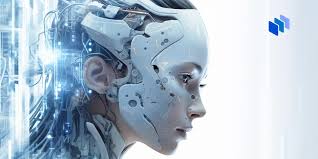The Biological Blueprint
To understand what makes us human, it's crucial to start at the biological foundation. Humans belong to the species Homo sapiens, characterized by a complex brain that supports abstract reasoning, language, introspection, and problem-solving. The human brain averages about 1,350 grams in weight and contains approximately 86 billion neurons. This neural network is what enables the vast array of human cognitive abilities.
Physiologically, humans are also distinct in their bipedal posture, having evolved to walk on two legs, a trait that frees the hands for manipulating objects and using tools. This adaptation has been pivotal in the development of human societies, technologies, and cultures over millennia.
Cultural and Social Identities
Humans are unique among species for their deep reliance on social structures and cultural learning. From the earliest hunter-gatherer societies to today's interconnected global communities, humans have created complex social norms, languages, and institutions. These are not just survival strategies but are ways to transmit knowledge, share emotional bonds, and create art and music.
Anthropologists estimate that there are around 7,000 languages spoken today, each carrying distinct knowledge and worldviews. Culture is a significant part of human identity, shaping beliefs, behaviors, and values across generations.
Moral and Ethical Awareness
A key aspect of what defines a human is our capacity for ethics and morality. Humans possess an innate ability to distinguish right from wrong, which guides behavior and influences societal laws and norms. This moral compass is evident in nearly every aspect of human life, from laws that govern behavior to personal decisions about right and wrong.
Our ethical inclinations are often reflected in how we treat others, including non-human entities. This is where the debate intensifies around topics such as animal rights, environmental conservation, and artificial intelligence.
Technology and Humanity: A Delicate Balance
As technology evolves, especially with the rise of AI, the question of what defines a human becomes more complex. Technology can enhance human capabilities but also raises questions about what it means to be human. The integration of AI into daily life prompts us to consider whether these technologies can possess 'human-like' traits.
In this context, the exploration of AI's role in understanding humanity is essential. Are we diluting the essence of human experience by outsourcing our abilities to machines, or are we extending the boundaries of what it means to be human? As we delve deeper into this discussion, it's crucial to remember that being human or not is a core part of this exploration. More insights on this topic are available at human or not.
In conclusion, the essence of humanity is a tapestry woven from our biological makeup, our cognitive abilities, our social bonds, and our ethical values. While technology continues to blur some of these lines, the fundamental aspects of what makes us human remain rooted in our capacity to think, feel, interact, and moralize in ways that are uniquely human.
